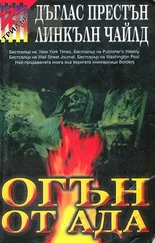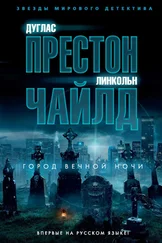The negotiator was speaking in a calm voice, going through the usual routine, trying to get him to give up and come out, nobody was going to hurt him. Thank God the guy was alone in the apartment and didn’t have a hostage. Snipers were in place but D’Agosta had resisted his impulse to give them the order to shoot on sight. He could feel the pressure all around him to put into motion the string of events that would result in Lasher being killed. That would be easy enough, and no one would second-guess him.
Another ten minutes passed. The negotiator was getting nowhere: this guy Lasher had drunk the anti-establishment Kool-Aid, and he was convinced that if he surrendered they would kill him. They wouldn’t let him live, he told the negotiator — he knew too much. He alone knew what they were up to, he knew their evil plans, and for that they would execute him.
There was no reasoning with the son of a bitch. D’Agosta was getting colder and more impatient by the minute. The longer this went on the worse he would look as commander.
“All right,” he said. “Retire the negotiator. Get ready to drop a flash-bang through the roof and go in through the door and the wall simultaneously. On my orders. I’m coming up.”
He wanted to be on-site; he didn’t want to coordinate this from afar. He walked down the block and went into the shabby building, passing the ESU, the K-9 team, the heavy trucks and armored cherry-picker. They really liked their toys, he thought with a certain affection, and brought them out at every opportunity.
He climbed the stairs to the fourth floor, one below the action. He confirmed that the four men on the roof had carefully and silently opened a hole right down to the drywall ceiling of the apartment, and that it was ready to be punched through and a flash-bang dropped. The two A-Team units on the fifth floor both confirmed they were in position and ready to roll.
“Okay,” said D’Agosta into the radio. “Proceed.”
A moment later he heard the sharp crack-boom of the stun grenade, followed by the double crash of the A-Team units simultaneously breaching the door and wall and storming the apartment. A shot rang out from inside, followed by another and another — and then it was over.
“Disarmed and apprehended,” came the announcement over the channel.
D’Agosta ran up the stairs, taking them two at a time, and entered the apartment. Here was Lasher, on the floor, cuffed, with two cops on him, in the middle of a tiny, messy, and malodorous hole of an apartment. They hauled him to his feet, whimpering. He was about five foot three, skinny, with acne and a wisp of a goatee. He was bleeding profusely from both the shoulder and the abdomen.
This is Lasher?
“He fired at us, sir,” one of the officers said, “justifying return fire to disarm him.”
“Good.” D’Agosta stepped aside as a medic came in to treat the gunshot wounds.
“You hurt me!” Lasher blubbered, and D’Agosta saw he was pissing himself.
D’Agosta scanned the room. There were posters for death-metal groups on the walls, a disorganized scatter of guns in a corner, half a dozen disassembled computers and heaps of other electronic devices of unknown function. The whole place was comico-absurd-frightening, like a dystopian movie set. This level of weirdness wasn’t what he’d been expecting. Looking at Lasher, his hair full of plaster dust, blood ponding across the littered floor, his skinny body shaking — well, was this really the guy who stalked and killed Cantucci with such ruthless precision? He just couldn’t see it. Then again, there was no denying the little prick had just shot a cop with a sawed-off shotgun... and then tried to kill some more.
“It hurts,” Lasher said more faintly, then slipped out of consciousness.
“Get him to Bellevue.” With a deep sigh, D’Agosta turned away. He would question the bastard once he was stabilized — his wounds were severe, but maybe not fatal. But not tonight. He needed to get some sleep — and the paperwork just kept piling up.
Christ, what a headache he had.
At five o’clock in the morning of December 24, about an hour before dawn, Special Agent Pendergast appeared at the door of apartment 5B in the building at 355 West 14th Street. He found the lone cop guarding the scene of the crime — the CSU had already finished — who was almost, but not quite, dozing in his chair.
“I’m so sorry to trouble you,” Pendergast began as the man leapt to his feet, the cell phone he’d been holding in his hand dropping to the floor.
“I’m sorry, sir, I’m—”
“Please,” said Pendergast in a soothing voice, sliding out his FBI shield and letting it fall open. “Just going to have a peek — if that’s all right with you, of course.”
“Oh sure,” said the cop, “of course, but do you have the authorization...?” His face fell slightly as Pendergast shook his head gravely.
“At five in the morning, my good friend, it is hard to get a signature. However, if you think you should call Lieutenant D’Agosta, naturally I’d understand.”
“No, no, that’s not necessary,” he said hastily. “But you are already authorized on the case—?”
“Of course.”
“Well, then, I guess you can go ahead.”
“Good man.” Pendergast sliced the crime scene tape from the door, broke the seal, and slipped into the apartment, turning on his light and easing the door shut behind him. He did not want to be disturbed.
He shone the light around the miserable space, pivoting as he did so, taking everything in. The light lingered on each poster, then moved to the scatter of guns on a piece of dirty carpet on the floor, the heap of computer equipment, circuit boards and old CRTs, now spattered with blood. His gaze roved over a crude workbench hammered together out of deal lumber, its top scarred and burned; the wall behind it hung with tools. It moved to the rumpled bed, across the kitchen nook, unexpectedly tidy — and all the way back around to where it had started.
Now he moved toward the workbench. This was his focus of interest. He inspected it from left to right, examining every last thing with the flashlight and occasionally a loupe, now and then picking up something with a pair of jeweler’s tweezers and slipping it into a test tube. His pale visage, illuminated by the reflected flashlight, floated like a disembodied face, silvery eyes glittering in the darkness.
For fifteen minutes he performed his examinations until suddenly he froze. In the corner where the rough deal table had been pushed up against the wall, his light had illuminated what appeared to be two grains of yellowish salt. The first one he picked up in his fingers; he rubbed it, examined the resulting whitish dust on his fingertips, sniffed at it, and finally tasted it with the tip of his tongue. The second grain he picked up with the tweezers and dropped into a tiny ziplock bag, sealing it and slipping it back into his jacket pocket.
He turned and left the apartment. The policeman on duty, waiting with rigid attention, rose. Pendergast took his hand warmly. “I thank you, Officer, for your help and attention to duty. I shall certainly mention it to the lieutenant when I see him next.”
And then he slipped down the stairs as silently and smoothly as a cat.
Almost exactly twelve hours after Pendergast left Lasher’s apartment, Bryce Harriman was pacing restlessly through his one-bedroom apartment on Seventy-Second and Madison. The apartment was in a converted prewar building, and the conversion had given the apartment a bizarre layout that allowed for a true circuit: from the living room, through the kitchen, into one door of the bathroom, out the other door into the bedroom, and then from the bedroom through a short, closet-lined hallway that led back to the living room.
Читать дальше
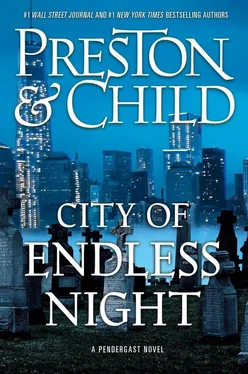
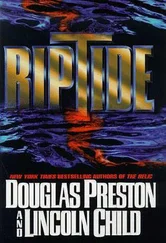

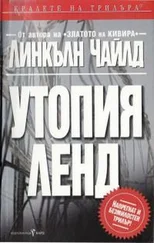


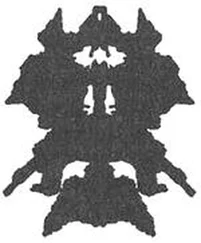


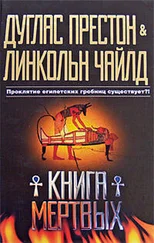
![Линкольн Чайлд - Стихи для мертвецов [litres]](/books/396536/linkoln-chajld-stihi-dlya-mertvecov-litres-thumb.webp)
